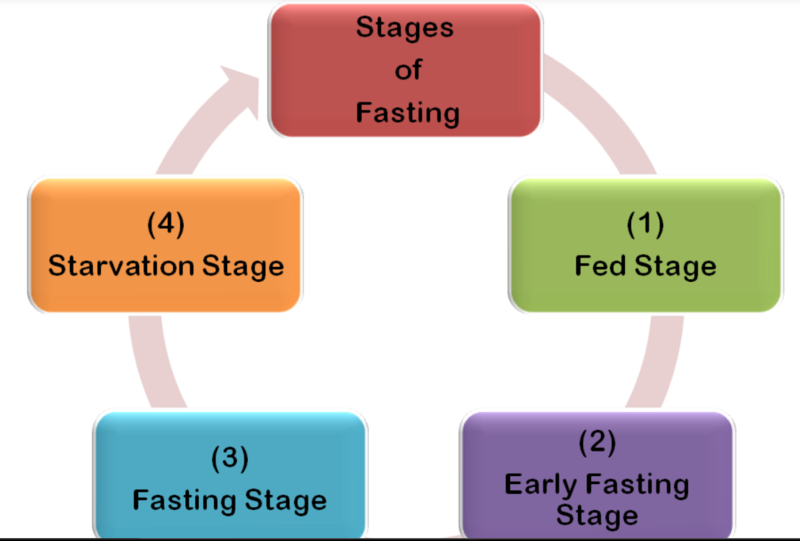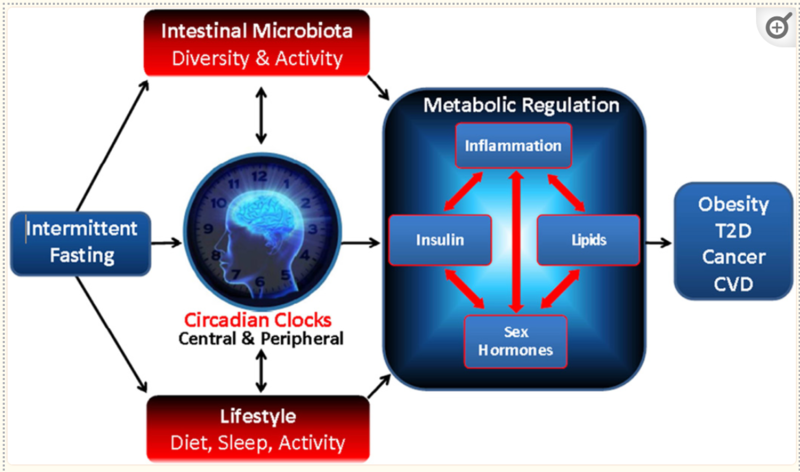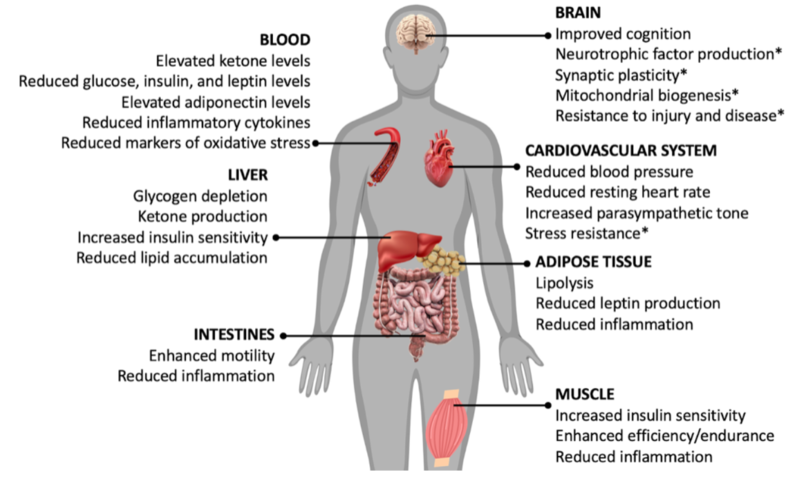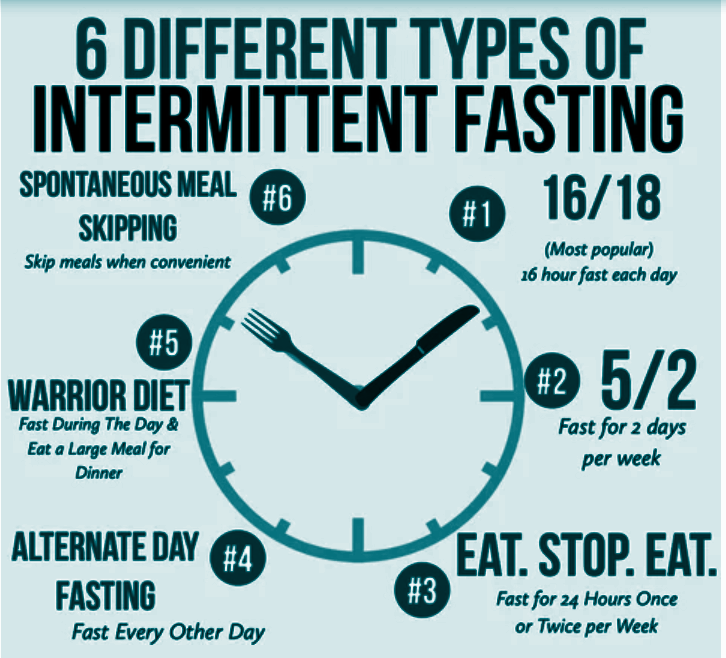Article: Intermittent Fasting: Clinical Benefits and Risks
M3 India Newsdesk Apr 02, 2025
This article provides an in-depth overview of intermittent fasting (IF), its physiological effects, benefits, risks, and suitability for different individuals. It includes those with metabolic and cardiovascular conditions.

An eating pattern known as intermittent fasting (IF) alternates between times when you eat and times when you fast. For obese individuals attempting to reduce their weight and adopt a healthier lifestyle, IF has demonstrated numerous advantages.
The IF diet works well for people who want to lose weight quickly—between less than a month and three months. During the fasting period, there were only minor side effects of varying severity that did not require medical or surgical intervention.
For obese people and those attempting to reduce their weight and adopt a healthier lifestyle, IF offers numerous advantages. It can enhance glucose metabolism and lower inflammation and body obesity.
Although intermittent fasting (IF) is used to help people lose weight, alternate-day fasting (ADF), a kind of IF, has also been found to help those who are not obese by reducing triacylglycerol, C-reactive protein, and leptin while raising the concentrations of adiponectin and low-density lipoprotein particle size.
Even though intermittent fasting (IF) has several advantages, there are certain minor negative effects that may occur during the fast that usually don't need medical or surgical intervention.
Intermittent fasting has been shown to help with weight loss and improve some markers of health. But it’s not for everyone. If you’re thinking of trying fast, consider the pros and cons.
Four stages of Fasting

1. Fed State
First 12-14 hours of a fasting state
This initial stage is where the body is still primarily using glucose for energy metabolism. This stage begins as soon as the individual stops eating.
2. Transition State
2-48 hours into fast
This is when the body uses up most available glycogen stores and starts to use fatty acids and ketones for metabolic fuel. During this time, the body uses glycogen stores, fatty acids, and ketones for fuel.
3. Fasting State
48-72 hours of Fasting
This is when most individuals are entirely in nutritional ketosis and are burning ketones as their primary fuel source. This state may happen earlier in some people than in others, and for many, the additional benefit of autophagy may also begin in this fasted state.
4. Extended Fasting State (Starvation)
72 hours and beyond
The body relies on ketones as its primary fuel source in extended (48+ hour) fasts, though this will vary depending on the individual.
Physiological Effects of Fasting
Different Types of Intermittent Fasting
Who Can Experience the Benefits of Intermittent Fasting?
Individuals With Prediabetes and Type 2 Diabetes
Many of the benefits seen in other areas of health can be attributed to the influence of periods of fasting on glycemic markers. Insulin sensitivity and resistance, beta-cell responsiveness, fasting blood glucose, and fasting insulin levels all show improvement.
- Those Who Are Overweight
The consensus is that intermittent fasting for weight loss is as effective as caloric restriction. Most studies on intermittent fasting in humans have observed weight loss, ranging from 2.5% to 9.9%.
- People With Cardiometabolic Concerns
Intermittent fasting has shown improvements in BMI, insulin sensitivity, blood sugar, and triglycerides. All lower the risk for cardiometabolic disease.
- Those Who Suffer from Autoimmune Conditions
Evidence suggests a connection between fasting and improvement in some autoimmune conditions. Studies have shown improvements in inflammatory and immune markers, likely due to changes in gut microbiota.
- People With Certain Genetic Markers or Family History of Illness
This is an emerging field. Conclusive evidence of the effects of time-restricted eating and fasting on conditions like dementia has yet to be established.
- Anyone Who Suffers from Gastrointestinal Discomfort
Evidence demonstrates that bowel rest can result in significant improvement in bloating, elimination issues, and incomplete digestion. Additionally, there is some clinical support for improvement in small intestinal bacterial overgrowth (SIBO) and gastrointestinal reflux disease (GERD).
Who May Benefit from Intermittent Fasting?
- Gastrointestinal (Gut) Microbiota
Numerous gastrointestinal tract processes show strong circadian or sleep-wake cycles. For instance, metabolic reactions to a glucose load are slower in the evening than in the morning, and blood flow and gastric emptying are higher during the day than at night.
Thus, it is conceivable that a chronically disrupted circadian rhythm could impact metabolism, health, and gastrointestinal function. The intricate, varied, and extensive microbial population that lives in the digestive tract is known as the gut microbiota, and it may be directly impacted by intermittent fasting.
- Modifiable Lifestyle Behaviours
An indirect measure of how intermittent fasting affects energy intake is provided by weight change. Fasting schedules limit the amount of time that can be spent eating, which may lower total energy intake and the risk of obesity. Furthermore, studies on shift and night workers have shown changes in the hormones that control hunger (leptin, ghrelin, and xenin), which could increase total energy intake. Eating at night is linked to shorter sleep duration and lower-quality sleep, which can raise the risk of obesity, diabetes, heart disease, and cancer as well as cause insulin resistance.
The association of IF with intestinal microbiota, circadian clock, and other lifestyle factors is hypothesised to result in metabolic regulation and downstream impacts on obesity, type 2 diabetes (T2D), cancer, and cardiovascular disease (CVD)

Benefits
- Weight loss: IF can help people lose weight and lower their body fat.
- Metabolic health: IF can lower blood sugar levels and reduce insulin resistance.
- Heart health: IF may reduce the risk of heart disease.
- Cancer: Experimental studies suggest that IF may reduce the risk of cancer.
- Neurological conditions: Experimental studies suggest that IF may reduce the risk of neurological conditions.
- Weight loss
- Lower cholesterol
- Lower blood pressure
- Improved blood sugar
- Less inflammation
- Better brain health
- Fewer age-related diseases
- Longer life
- Weight loss
- Reduced blood pressure
- Reduced inflammation
- Lower cholesterol
- Better outcomes for stroke survivors
- Boosted brain function
- Cancer protection
- Increased cell turnover
- Reduced insulin resistance
- Lower risk of cardiovascular issues
- Increased longevity
- A better night’s sleep 6
Conditions or Factors that Contraindicate IF
- History of Eating Disorders: Intermittent fasting involves some level of food restriction. This can be triggering for those who have a history of disordered eating.
- Existing Medical Conditions that Would Preclude Caloric Restriction: If malnutrition is a concern or the need for consistent energy intake is necessary, the potential benefits of intermittent fasting may not offset the risks.
- Women who are Pregnant, Nursing, or Trying to Become Pregnant: Pregnancy and nursing require an increase in caloric energy intake and frequency.
- Individuals on Time-Specific Medications: Some medications need to be taken with food and may require specific timing. A pharmacist can help guide patients in adjusting the timing or intake of these medications.
- Children: Growth and adequate nutrient intake during childhood supersede the potential benefits of intermittent fasting. However, structured meals and reduced snacking can still be a goal.
- Special Consideration: Women may have varied responses to different forms of fasting based on their underlying hormonal health as well as where they are in their cycle. Fasting recommendations for women may warrant special individualisation.
What Factors Contribute to the Increasing Popularity of Intermittent Fasting?
- Flexible: Intermittent fasting allows for personalisation. One can extend their nightly fast, eat early in the day, eat several small meals during their feeding window, or have one large meal. They can share their main meals with their family and continue to partake in social gatherings.
- Inexpensive: Intermittent fasting requires no proprietary food, exotic meal preparations, or special accessories. It is a means of working with what you already have.
- Simple: Intermittent fasting does not generally involve counting calories, precise protein/fat/carbohydrate ratios, or calculating macro and micronutrients. The primary structure of intermittent fasting is when and how often one eats. This may be more manageable than complex diets.
- Accessible: Intermittent fasting does not differentiate between social and economic classes. Aside from medical and social contraindications, this method of eating is truly accessible for all.
Side Effects of Intermittent Fasting
For individuals who want to lose weight in a short period of time—less than a month to three months—the IF diet is an effective dietary regimen. There were very few adverse effects during fasting, ranging in severity, and none required surgery or medical intervention. Overall, the IF diet produced great weight loss outcomes, and participants were happy with their experience.
- Headaches and lightheadedness
- Digestive issues like constipation, nausea, bloating
- Irritability and other mood changes
- Fatigue and low energy
- Bad breath
- Dehydration
- Malnutrition
- Insomnia
Risks
- Hypoglycaemia: IF can lead to hypoglycemia, which can cause headaches.
- Mental health: IF can cause mental health symptoms like anxiety, fatigue, and irritability.
- Bone density: IF can reduce bone density and lean body mass.
- Other side effects: IF can cause hunger, bad breath, lethargy, dizziness, and constipation.
Who Should Avoid IF
- Children and teens under age 18
- Women who are pregnant or breastfeeding
- People with type 1 diabetes who take insulin
When to Consult a Doctor
Before starting IF, you should consult with your primary care practitioner, especially if you have any health conditions that affect your eating patterns.
For some groups or individuals with certain health issues, fasting may not be a wise idea. Hyer advises against fasting or consulting a physician first if you:
- Are over 65
- Are still growing (children, teens, and young adults who haven’t finished developing)
- Have diabetes
- Have heart, kidney, or liver disease.
- A history of problematic eating or eating disorders
- Are pregnant or breastfeeding
- Have low blood pressure.
- Use drugs that impact your blood sugar, such as blood thinners, diuretics, or blood pressure medications.
Tips for Intermittent fasting
The following advice will help you get started if you wish to practice intermittent fasting:
- Think about your lifestyle: If family dinners are important to you, it doesn’t make sense to start fasting every day at 3 p.m. Think about which option best fits your life.
- Read up: What are your goals for fasting: to lose weight, live longer, control your blood sugar? “Educate yourself so you can choose the approach that makes sense for you,” Hyer says.
- Eat well: Eating a nutritious diet is not something that intermittent fasting can replace. In other words, after your fasting time is up, you can't just binge on hamburgers and fries. Eat as much lean protein, whole grains, and fruits and vegetables as you can.“Eating during a very small window and not focusing on healthy eating can be nutritionally inadequate,” Hyer says.
- Drink up: To prevent dehydration during a fast, make sure you consume an adequate amount of water.
- Plan: Hyer recommends planning and prepping meals ahead of time so you have healthy foods ready to grab when you’re hungry. In this manner, you'll be less inclined to overindulge in snacks when the window for eating opens.
- Don't overdo it: According to Hyer, she has heard of intermittent fasting regimens that recommend eating just one meal per day. She warns, "You should probably avoid that plan." “It’s hard to get enough vitamins, minerals, and other nutrients if you’re eating just once a day.” Even the more common 5:2 plan isn’t appropriate for everyone. Before attempting one of these more drastic methods of intermittent fasting, consult your physician.
- Ease in: If you’re interested but worried about going a long time without eating, start small. After 12 hours of eating, fast for another 12 hours. Or start even smaller by “fasting” between meals. “If fasting sounds scary, try to avoid snacking between meals and especially late-night snacking,” Hyer says. “That can be an easy way to give yourself time for your blood sugar to recover between meals.”
As with most eating plans, it’s always a good idea to speak to your doctor before overhauling your diet, Hyer says. That’s especially true if you take medications or have health problems or if you’re considering more extreme fasting plans. However, she thinks that a 12- to 14-hour fast is a fairly safe option for the majority of people. “You still have to make sure you’re picking healthy foods,” Hyer adds. “But intermittent fasting is one tool that can kickstart a healthy lifestyle change.”
Distinguish between Calorie Restriction and Intermittent fasting
A reduction in total caloric intake that does not lead to malnutrition is known as calorie restriction (CR). In many species, including non-human primates, this has been repeatedly shown to lead to a reduction in body weight and an increase in longevity.
The phrase "intermittent fasting" (IF) describes eating habits that aim to consume few or no calories during specific times (from 12 hours to several days). It has a set duration, is voluntary, and involves the regular consumption of caloric liquids.
It has had increasing popularity as an alternative to continuous CR, with emerging data supporting the promise of delivering similar benefits concerning weight loss and cardiometabolic health. As opposed to traditional CR paradigms, IF only requires fasting for discrete periods.
Disclaimer: The views and opinions expressed in this article are those of the author and do not necessarily reflect the official policy or position of M3 India.
About the author of this article: Pallavi Dubey has done a Master's in Clinical Nutrition & Dietetics and is currently working as a Senior Clinical Nutritionist at Recoup Health, Bangalore.
-
Exclusive Write-ups & Webinars by KOLs
-
Daily Quiz by specialty
-
Paid Market Research Surveys
-
Case discussions, News & Journals' summaries

